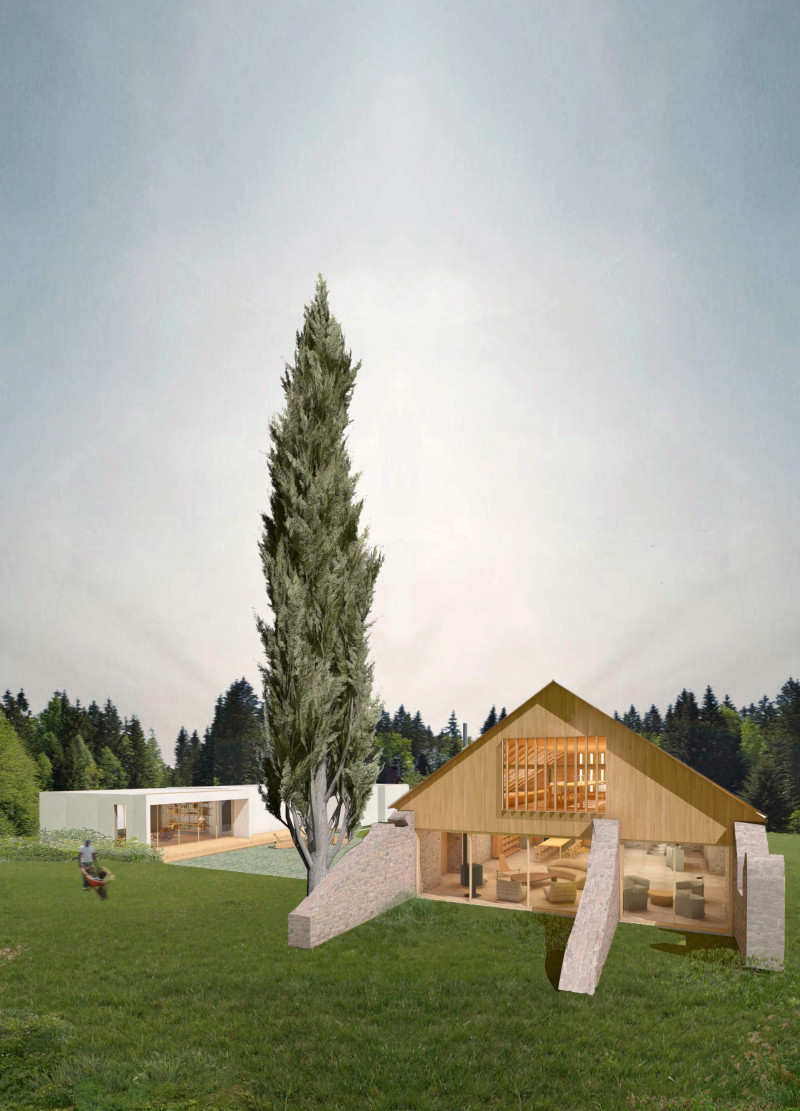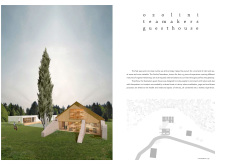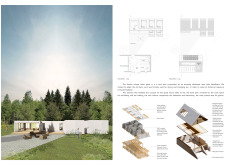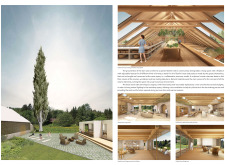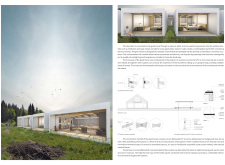5 key facts about this project
The Ozolini Teamakers Guesthouse is located in a forested area of Latvia, close to Lake Bezdibene. It is designed to create a peaceful setting for visitors, encouraging a return to nature and personal reflection. The guesthouse supports activities like meditation and yoga, alongside the appreciation of organic herbal teas. The design incorporates an existing barn, historically tied to tea production, to blend tradition with contemporary architectural practices.
Adaptation and Use of Space
The project features two main parts: the renovated barn and a new section providing private guest rooms. The barn serves as a common area for social gatherings and tea preparation. This arrangement maintains a balance between shared experiences and quiet accommodations. An open-air patio links the barn to the guesthouse, allowing for outdoor activities and contributing to the retreat’s tranquil environment.
Arrangement of Units
The layout employs a modular system, with individual guest units spread across the site and connected by walkways. This design encourages natural light to fill the interior spaces while framing views of the surrounding forest. The second level of the barn has been adapted into a flexible area for workshops and education focusing on tea culture and holistic health, promoting interaction among guests and an engaging learning experience.
Material Choices
Material selection is key to defining the guesthouse’s character. The design uses cement plates treated for waterproofing and thermal insulation, while OSB and drywall panels offer sound insulation. Skylights are strategically positioned to maximize natural light and enhance comfort. Wood slats allow for ventilation, and new wood floors add structural stability, particularly in the mezzanine section. Cross Laminated Timber (CLT) is utilized in the building's framework, emphasizing an eco-friendly approach, while concrete foundations keep wooden components dry and secure.
Distinctive Design Elements
A circular staircase connects the barn's ground floor to its upper level, serving as a significant design feature that encourages guest interaction. The carefully considered integration of modern design elements with historical aspects respects the site's heritage. Quiet sitting areas and large windows invite visitors to relax and enjoy the peaceful surroundings, fulfilling the guesthouse’s goal of providing a restorative space that celebrates the traditional practice of tea.


